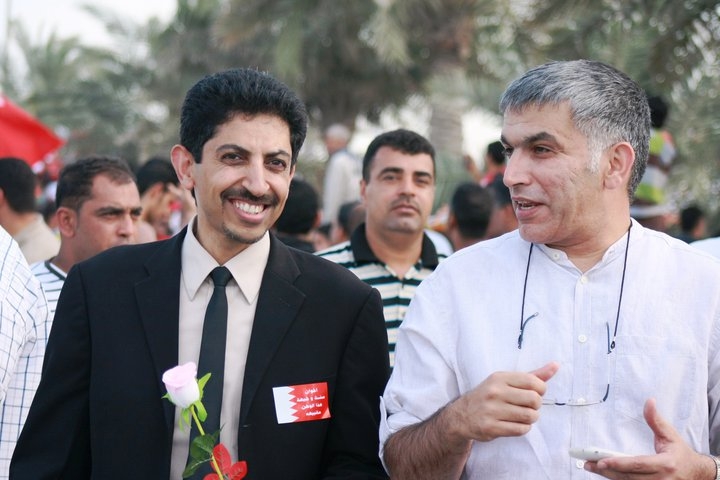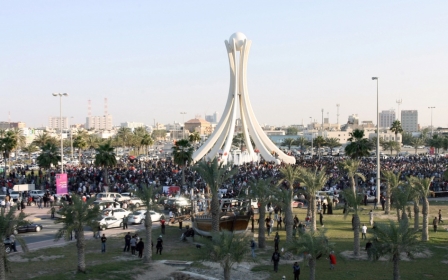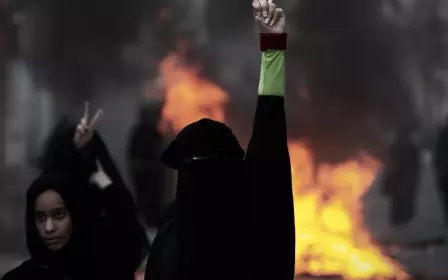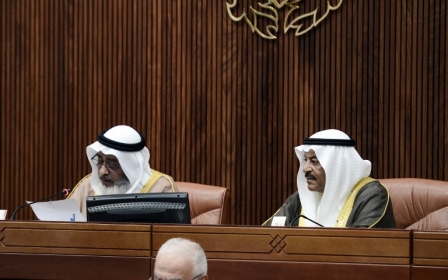Released activist urges 'genuine dialogue' in Bahrain

Prominent Bahraini opposition leader Nabeel Rajab was released from prison on Saturday and urged “serious dialogue” with the island’s al-Khalifa rulers, after serving a two-year prison sentence for taking part in illegal protests.
Rajab, head of the Bahrain Centre for Human Rights, was jailed in 2012 for his involvement in illegal gatherings and disturbing public order. He served two years in prison, after having an original three-year sentence reduced by an appeals court.
Human rights groups campaigned for his release, with Amnesty International describing his imprisonment as an attempt to “stamp out dissent”. Authorities say Rajab compromised national security by taking part in “illegal rallies in [the capital] Manama”.
Speaking to reporters outside his home on Saturday evening, Rajab called for substantive dialogue between all sides in the Gulf State.
“There must be genuine dialogue between the ruling family and the representatives of the people, and their Bahraini opposition,” he is quoted as saying by the Reuters news agency.
“I will continue to struggle for democracy and for respect for human rights,” he added.
Bahrain has been in the grip of an uprising against the monarchy for three years that began in the capital Manama on 14 February 2011 when hundreds of thousands of people gathered at the Pearl Roundabout to call for democracy. Three days later, government forces broke up protest camps with teargas, birdshot and batons that left at least two dead and hundreds injured.
Rajab decried a deteriorating situation, which has seen sporadic outbreaks of violence between protesters and authorities.
“Unfortunately, the situation today is worse than when I went to jail because of an upsurge in violence, which we reject,” he told the AFP by phone on Saturday.
At least 89 protesters and 13 police officers have been killed since the uprising began, with the government accused of firing at and torturing protestors while some demonstrators have been implicated in the use of Molotov cocktails and improvised explosive devices.
A national dialogue process between opposition representatives and the government has been stalled since January, due to sharp differences of opinion over the uprising and a failure to agree on a format and agenda for the talks.
Rajab is held in the highest esteem among the Bahraini opposition and on Saturday his supporters shared their joy at his release on social media.
Bahraini activists explained that Rajab represents hope for the opposition that they can achieve their goals.
“Nabeel Rajab is hope for the majority of people in Bahrain, who are fighting and seeking justice, human rights and democracy,” said Said Yousif, head of monitoring at the Bahrain Centre for Human Rights.
“He was one of the few people who spoke out after the crackdown against peaceful protesters began, at a time when people were being killed in the street,” he added.
The future, however, remains unclear for Bahrain as there are few signs to suggest a solution is soon to be found in bringing together communities that remain deeply divided.
Middle East Eye propose une couverture et une analyse indépendantes et incomparables du Moyen-Orient, de l’Afrique du Nord et d’autres régions du monde. Pour en savoir plus sur la reprise de ce contenu et les frais qui s’appliquent, veuillez remplir ce formulaire [en anglais]. Pour en savoir plus sur MEE, cliquez ici [en anglais].




